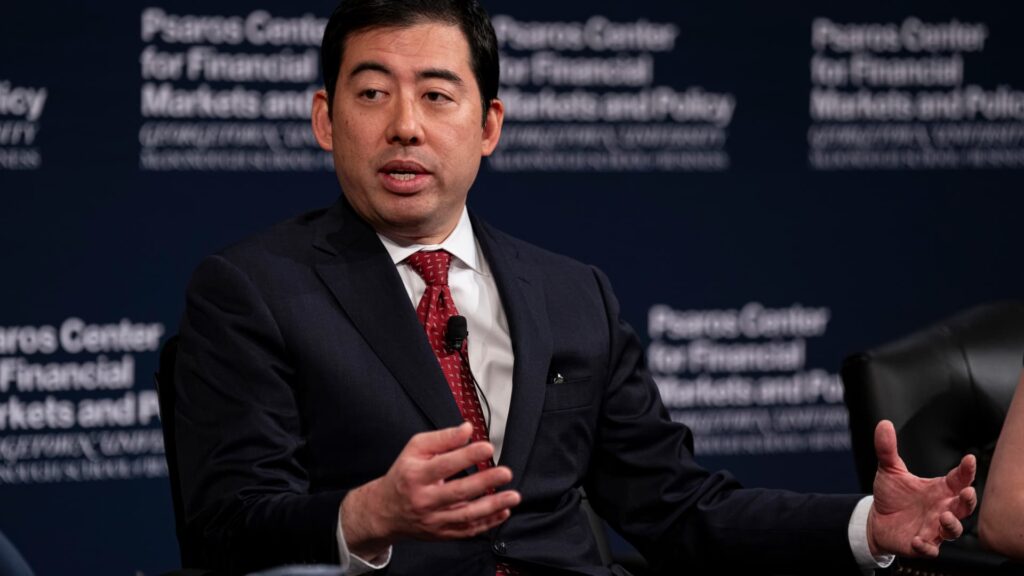Mark Uyeda, Commissioner of the United States Securities and Exchange Commission (SEC), speaks at the 2024 Financial Markets Quality Conference at Georgetown University in Washington, DC, United States, Tuesday 17 September 2024.
Al Drago | Bloomberg | Getty Images
The Trump administration on Tuesday took its first steps toward an expected lowering of regulatory barriers for cryptocurrency.
In a highly anticipated move by the digital assets industry, the Securities and Exchange Commission announced that its Acting Chairman, Mark Uyeda, has launched a “Cryptocurrency Task Force” aimed at “developing a comprehensive and clear regulatory framework for crypto assets.”
During the presidential campaign, Donald Trump promised a cryptocurrency-friendly administration for the $3.7 trillion industry.
Although Uyeda announced the initiative, it will be led by SEC Commissioner Hester Peirce. Uyeda holds the chair until Paul Atkins completes the confirmation process and provides application resources.
According to the SEC’s announcement, the panel’s task will be to develop a clear set of rules while also addressing questions regarding the registration of coins.
“We look forward to working hand-in-hand with the public to foster a regulatory environment that protects investors, facilitates capital formation, promotes market integrity and supports innovation,” Peirce said.
Bitcoin rallied following the announcement, up around 2.4% to over $106,000.
Just before his inauguration, Trump highlighted his support for digital currencies by launching his own coin, called $TRUMP, while first lady Melania Trump launched a coin called $Melania. Both tokens experienced rapid price increases before falling sharply.
The White House’s view on crypto differs sharply from when Joe Biden was president. Gary Gensler, then chairman of the SEC, was considered an enemy of the industry.
During Gensler’s tenure on the commission, he resisted efforts to create crypto exchange-traded funds, approved strict accounting policies and filed complaints against industry leaders.
“Clarity around who should register and practical solutions for those seeking to register remain elusive. The result has been confusion over what is legal, creating an environment hostile to innovation and conducive to to fraud,” said the commission’s press release. “The SEC can do better.”
The task force intends to hold public hearings and seek input from industry. He will work with federal departments and agencies, including the Commodity Futures Trading Commission.
“This endeavor will take time, patience and a lot of hard work. It will only succeed if the task force benefits from input from a broad range of investors, industry participants, academics and other interested parties,” Peirce said.

